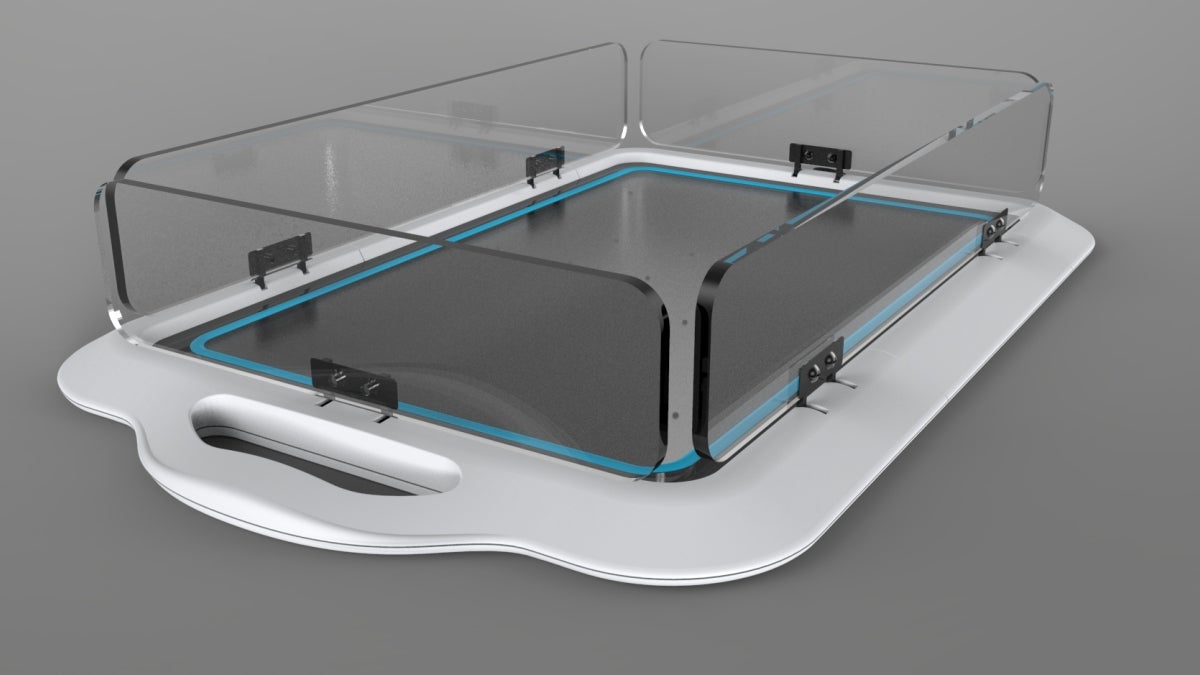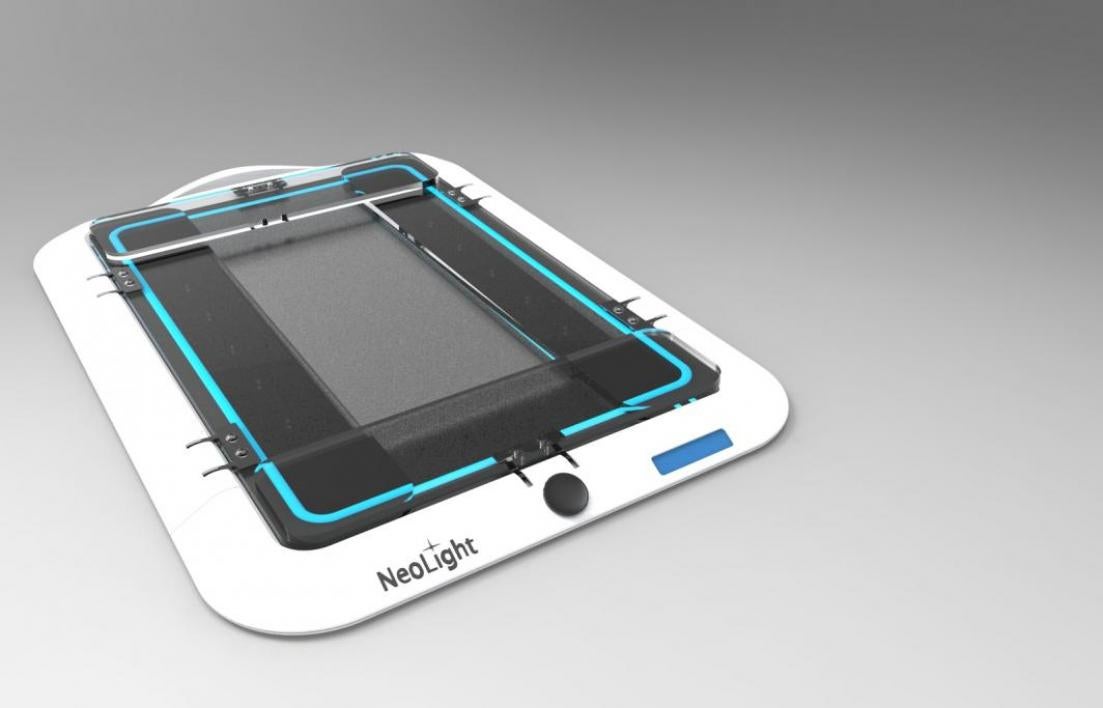A light-emitting crib that cures infant jaundice, a tool to enable oncologists to personalize cancer-fighting drug cocktails and software that allows doctors to diagnose epilepsy on the spot are among the Arizona bio startup companies awarded development grants from the Flinn Foundation.
Four of the six local bioscience companies that won Flinn Foundation Entrepreneurship Grants originated at Arizona State University — which does not have a medical school.
That has proved to be a hidden advantage, some of the grant winners said.
“I don’t think a medical school is the primary hub for medical technology to come out of,” said Vivek Kopparthi, co-founder and CEO of Neolight, a small, portable phototherapy bed that cures jaundice in pre-term and full-term babies. “It’s the engineering school and all the resources at ASU. … Every single resource I needed to build and scale this company ASU gave to me.”
Neel Mehta, co-founder and chief strategic officer of Epifinder, agreed.
“Having no medical school, we can think anything,” said Mehta, whose devise can help diagnose epilepsy. “Necessity is the mother of invention at ASU. We are so blessed and so grateful to have such a great community of all the colleges, from health solutions to business to engineering. It leaves students to mix and mingle and identify what they are passionate about.”
Each of the four companies received $30,000 from the Flinn Foundation, a privately endowed, philanthropic grantmaking organization established in 1965 by Dr. Robert S. Flinn, a prominent cardiologist, and his wife, Irene. The foundation’s mission is to improve the quality of life in Arizona to benefit future generations.
Creativity and interdisciplinary approaches at ASU are direct causes of the quality of health care and biotech companies coming out of the university, said Sethuraman “Panch” Panchanathan, chief research and innovation officer and executive vice president at the ASU Knowledge Enterprise.
"There is immense opportunity for bioscience startups to address health challenges and develop unique solutions for them,” Panchanathan said. “ASU encourages this kind of grassroots innovation and out-of-the-box thinking. Our interdisciplinary approach ensures that students and faculty from any discipline have access to the resources they need to scale their innovative ideas resulting in global impact."
The winning firms in the 2016 Flinn Foundation Bioscience Entrepreneurship Program will also receive a set of program services administered through a nonprofit partner. The program was established to foster entrepreneurship and help early-stage bioscience firms develop into successful and sustainable businesses.
Here’s a look at the four companies:
NeoLight
Six out ten babies around the world are born with jaundice. Neolight is a small, portable phototherapy bed that cures jaundice in pre-term and full-term babies quickly and without side effects. The portable incubator with LEDs provides quick treatment time, reduces the amount of parts needed, uses a small amount of power and enables newborns to remain close to their mothers.
Researchers met with the Phoenix Children’s Hospital in the course of development. “They told us our device could solve problems they had with technologies in the U.S. market,” Kopparthi said. “With our device, the mother can hold the baby in her hand. … You don’t really have to be at the hospital to treat a baby for jaundice. … You’re saving tens of thousands of dollars.”
Neolight will be on the market by the end of the year. The Flinn Foundation grant will accelerate product funding.
Epifinder
There are more than 50 types of epilepsy, and it’s often challenging for physicians to identify what type of epilepsy a patient is suffering from.
“Experts told us they wish they had something that could diagnose patients at the point of care,” Mehta said.
They didn’t want another device; they wanted software. Epifinder is a smartphone software application which allows a physician to effectively diagnose epilepsy symptoms at point of care. It will reduce health care costs for hospitals, enable doctors to provide personalized medicine and help to improve the quality of life of patients.
Currently Epifinder is getting feedback from the Mayo Clinic. “We are in the closed beta phase of the software,” Mehta said. “It’s up and running.”
The company will launch publicly this year in May or June.
Omica
“We’re a tool that enables doctors and researchers to account for diversity in tumors,” said co-founder and CEO David Richardson. The Omica tool enables doctors to find a cocktail of drugs to fight cancer on a personalized basis by inserting a biopsy into a device.
“We’re a fancy dissection tool for biopsies,” Richardson said. “We’re enabling a person to identify what the cocktail should be.”
The Light Stream FloCell is capable of extracting a single cell or bulk cells from a targeted area, increasing the overall quantity and quality of cellular material collected.
Breezing
The world’s first mobile metabolism tracker measures an individual’s metabolism through breathing. The Tempe-based company tracks one’s metabolism over time and integrates with weight, activity and dieting goals to provide customized feedback on reaching weight goals.
More Science and technology

Ancient sea creatures offer fresh insights into cancer
Sponges are among the oldest animals on Earth, dating back at least 600 million years. Comprising thousands of species, some with lifespans of up to 10,000 years, they are a biological enigma.…

When is a tomato more than a tomato? Crow guides class to a wider view of technology
How is a tomato a type of technology?Arizona State University President Michael Crow stood in front of a classroom full of students, holding up a tomato.“This object does not exist in nature,” he…

Student exploring how AI can assist people with vision loss
Partial vision loss can make life challenging for more than 6 million Americans. People with visual disabilities that can’t be remedied with glasses or contacts can sometimes struggle to safely…





